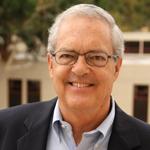 |
Events
In the News
ACA: a major step forward
Is the minimum wage too low?
Arizona decision unlikely to mean more immigrant
workers
Finding a fair price on minimum wage
Give incentives to improve education quality in state:
Report
Orange County's proposed Great Park can't use tax
revenues as funding, California says
What you need to know about the new census numbers on
Hispanic births
Timing is bad for a minimum wage increase
More than wages for the working poor
S.F. Fed: Skills mismatch, joblessness link
overblown
Half of new grads are jobless or
underemployed
How Wal-Mart shapes the world
Want to add jobs? Subsidize employers - Fed
paper
Early signs that Obamacare is on the right track to
reduce costs
Debate rages over New York raising its minimum wage by
$1.25 an hour
Pay workers more, feel economic pain
Debating the benefits, pitfalls of minimum-wage
increase
Minimum wage rise, jobs fall
Will health care reform keep its cost reducing
promise?
This new report proves Obamacare just might
work
Total health care costs fall when poor are provided
insurance: Study
Wage worries
Higher minimum wage bad for N.Y.
Raising the minimum wage: Who does it
help?
San Francisco minimum wage is set to become the highest
in U.S.
Minimum wage is about to go up in eight
states
Shopping local a boon to local economies
How to play the rescue
F.C.C. seeks review of AT&T merger with
T-Mobile
Higher costs for bullet train worth it, California
officials say
Study finds education gap for illegal Mexican migrants'
children
Op-Ed: Economic inequality: The real cause of the urban
school problem
Small businesses, big job numbers
As incomes drop, Americans dip into
savings
Study: U.S. economy avoided panic during 1931 European
crisis by...not panicking
California poverty rate 16.3 percent in 2010, highest
in nation
Governors don't create many jobs. Can
presidents?
Sprint says AT&T merger would result in big job
losses
Sprint-commissioned study debunks AT&T's job
claims
Homegrown companies have huge economic
impact
Obama nominee pulled back on minimum wage
defense
Krueger isn't just a pretty face, say his economic
peers
|
Pass it on
Know anyone who might be interested in our newsletter? Email us to subscribe.
|
|
 |
Message
from the director
 The
first year of existence of the Center for Economics & Public Policy has been filled with inaugural activities and planning for future events. The
first year of existence of the Center for Economics & Public Policy has been filled with inaugural activities and planning for future events.
One of our central goals is to contribute to informed public debate about economics-related public policy issues at the national and state level as well as at
UCI and in the local community. To that end, we hosted two lectures by prominent experts on critical national policy issues. In November, Alan Auerbach, Robert
D. Burch Professor of Economics and Law from the University of California, Berkeley, gave a public lecture on long-term fiscal challenges to the United States.
The timing was impeccable as his lecture coincided with the most recent round of political brinksmanship on cutting the deficit and national debt. Auerbach's
lecture emphasized the critical importance of reining in the growth of Social Security and even more so Medicare spending, and outlined the kinds of tax
increases and spending cuts needed to move the United States to a fiscally-sound long-term trajectory. The lecture was sobering in highlighting the far more
extensive changes needed than any that have yet received serious consideration in Washington.
In May, Casey Mulligan, economics professor from the University of Chicago, gave a lecture on the Great Recession and how government redistributive policies
have increased its severity. Delivered to a standing-room-only crowd of students and community leaders, Mulligan outlined how well-intentioned efforts to
cushion the blow of the Great Recession, such as increased generosity of the social safety net and assistance to homeowners struggling with mortgages, have
inadvertently reduced the economic returns to work. As a result, he argues that employment growth has remained well below what would have been expected based
solely on the impact of the initial causes of the Great Recession. In other words, these policies to help families deal with the Great Recession have made the
recession worse. The controversial views Mulligan presented led to a lively and stimulating exchange with the audience, which continued over an informal dinner
with community leaders.
CEPP also endeavors to encourage UCI faculty and students to engage in research related to economics and public policy. In support of this goal, financial
awards from a program funded by Steven Borowski '79 were made to three students - two Ph.D. students and one undergraduate student - in support of research on
transportation policy. CEPP also sponsored two research seminars for faculty and graduate students in the social sciences: one on immigration policy by Magnus
Lofstrom, fellow of the Public Policy Institute of California, and one by Jon Sonstelie, economics professor at the University of California, Santa Barbara.
This newsletter is the very first stage in the third leg of the center's efforts - to communicate the findings from research on economics and public policy to
the policy community. In the newsletter, you will find links to recent working papers by CEPP research affiliates. You will also find numerous links to
newspaper stories and other descriptions of policy-relevant research by these same faculty, as well as op-eds and policy memos by faculty affiliates:
To learn more, I encourage you to browse through the material, and to dig more deeply into the papers and other sources. Please feel free to contact me if you
have additional questions or if you would like more information. And I welcome your suggestions as to how the Center for Economics & Public Policy can do more
to strengthen the links between research and policy.
David Neumark
Chancellor's Professor of Economics
STUDIES
Healthcare costs decrease over time when low-income uninsured are provided coverage, study finds
 Study co-authored by economist David Neumark published in Health Affairs Study co-authored by economist David Neumark published in Health Affairs
Enrollment of uninsured patients in a program with benefits comparable to those offered under the Affordable Care Act of 2010 resulted in significant
healthcare cost savings, a new study finds. Published in the February 2012 issue of Health Affairs, the research sheds light on the potential outcomes
of newly enacted healthcare reforms.
Read on...
New study
ties Mexican American educational attainment gap to grandparent legal status
 Findings presented at international immigration conference in D.C. Findings presented at international immigration conference in D.C.
According to new research by Frank D. Bean, sociology Chancellor's Professor, pathways to legalization and citizenship appear to take on greater
significance for overcoming disadvantages in Mexican American educational attainment than previously thought.
Read on...
Surprising findings from minimum wage critic
 Study by UCI economist finds merits behind higher minimum wage - when coupled with Earned Income Tax Credit Study by UCI economist finds merits behind higher minimum wage - when coupled with Earned Income Tax Credit
In a study published in the July 2011 issue of Industrial and Labor Relations Review, UCI economist David Neumark finds that a high minimum wage, when
coupled with the Earned Income Tax Credit (EITC), increases employment and earnings among single mothers, especially those with very low family incomes. The
findings are surprising, says Neumark, given that most of his work has focused on the adverse effects of minimum wages on low-skilled workers.
Read on...
Study:
California's economic climate is sunnier than previously thought
 UCI economist David Neumark finds non-policy factors such as weather and geography play greater role in predicting states' economic growth than
traditional business climate index measures UCI economist David Neumark finds non-policy factors such as weather and geography play greater role in predicting states' economic growth than
traditional business climate index measures
Location, location, location. That's what UC Irvine economics Chancellor's Professor David Neumark says is key to understanding how California's economy has
managed to stay in line with or surpass the national growth average, despite the Golden State's less than favorable rankings in popular business climate
indexes.
Read on...
WORKING PAPERS
- Fiscal Zoning, Sales Taxes, and Employment: Do Higher Sales Taxes
Lead to More Jobs in Retailing and Fewer Jobs in Manufacturing?
Daria Burnes, Ph.D. | David Neumark, UC Irvine, NBER, and IZA | Michelle J. White, UC
San Diego, CKGSB, and NBER
- Immigrants, Welfare Reform, and the U.S. Safety Net
Marianne Bitler, UC Irvine | Hilary W. Hoynes, UC Davis
- Unstable Inflation Targets
William A. Branch, UC Irvine | George W. Evans, University of Oregon and University of St. Andrews
POLICY MEMOS
OP-EDS
VIDEO & AUDIO
|
 |

 The
first year of existence of the Center for Economics & Public Policy has been filled with inaugural activities and planning for future events.
The
first year of existence of the Center for Economics & Public Policy has been filled with inaugural activities and planning for future events.  Study co-authored by economist David Neumark published in Health Affairs
Study co-authored by economist David Neumark published in Health Affairs
 Findings presented at international immigration conference in D.C.
Findings presented at international immigration conference in D.C.
 Study by UCI economist finds merits behind higher minimum wage - when coupled with Earned Income Tax Credit
Study by UCI economist finds merits behind higher minimum wage - when coupled with Earned Income Tax Credit
 UCI economist David Neumark finds non-policy factors such as weather and geography play greater role in predicting states' economic growth than
traditional business climate index measures
UCI economist David Neumark finds non-policy factors such as weather and geography play greater role in predicting states' economic growth than
traditional business climate index measures